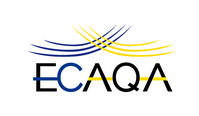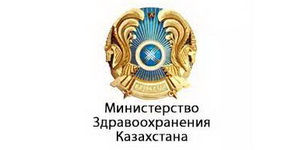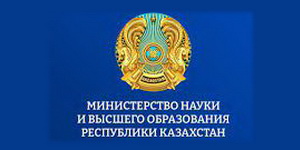Faculty, staff and students training on the application of Standards and Guidelines for Quality Assurance in the European Higher Education Area (ESG 2015)
Faculty, staff and trainees training on the application of the Standards and Guidelines for Quality Assurance in the European Higher Education Area (ESG 2015)
The Standards and Guidelines were first adopted by the Ministers of Education in 2015 at the suggestion of the European Association for Quality Assurance in Higher Education (ENQA), European Association of Institutions in Higher Education (EURASHE) and European University Association (EUA). The new version of the document was approved by the Conference of Ministers. http://erasmusplusinrussia.ru/PDF/BolonProcess/Standarty_Bolon_Process.pdf
The Standards and Guidelines reflect the consensus of all developing organizations on the next steps to quality assurance in the European Higher Education Area and provide a solid foundation for their successful implementation.
Aims
Development of common understanding of quality assurance in teaching and learning in all countries and among all stakeholders.
Development of national and institutional quality assurance systems in the European Higher Education Area (EHEA) and in international cooperation.
Participation in quality assurance, namely in external, provides an opportunity for European higher education systems to demonstrate quality and increase transparency, contributing to the formation of mutual trust, improving the recognition of qualifications, programmes and other aspects related to the programme implementation.
Scope of application
ESG is a set of standards and guidelines for internal and external quality assurance in higher education.
ESG is used by higher education institutions and quality assurance agencies as Guidelines for external and internal quality assurance systems in higher education.
ESG aims to ensure the quality of learning and teaching in higher education, including the learning environment and relevant links to research and innovation.
ESG is also applicable to all higher education institutions including transnational and cross-border education.
ESG is used by the European Quality Assurance Register for Higher Education (EQAR), which is responsible for registering quality assurance agencies that meet ESG requirements.
ESG aims to:
- define a common framework for quality assurance system of education and training at European, national and institutional levels;
- contribute to ensuring and improving the quality of higher education in the European Higher Education Area (EHEA);
- maintain mutual trust thus promoting recognition and mobility within and outside of the national education systems;
- provide information on quality assurance at the EHEA.
Eurasian Centre for Accreditation and Quality Assurance in Higher Education and Health Care conducts training for academia and other stakeholders (university students, graduates and specialists) on the interpretation and application of ESG 2015
There are two options for a seminar: 6 and 36 hours.
ESG 2015 SEMINAR PROGRAM
- Duration: 6 hours
- Participants: faculty and staff of education and research institution, students, representatives of professional associations
- Event format: PowerPoint Presentations, assignments
- Event outcomes: seminar certificates
- Trainers: local and foreign accreditation experts
|
Content |
Contact hours |
|
Introduction. ESG: context, area of application, aims and principles. ESG2015 Standards and Guidelines and their role in the institutional self-evaluation of education institution: 1. Quality assurance policy. 2. Programme development and approval. 3. Student-centred learning, teaching and assessment. 4. Admission to training, promotion, recognition and certification. 5. Teaching staff. 6. Educational resources and student support system. 7. Information management. 8. Public announcement. 9. Ongoing monitoring and periodic review of programmes. 10. External quality assurance cycles. |
3 |
|
Self-evaluation: awareness of strengths and weaknesses; assessment of key evidence, the relationship between documentation and conclusions. Self-assessment report: goals, principles, requirements for the content of the report and attachments. Stakeholders and students participation. |
2 |
|
Follow up: post-accreditation monitoring. Feedback. End of the training. |
1 |
|
total |
6 |
ESG 2015 SEMINAR PROGRAM
- Duration: 36 hours
- Participants: faculty and staff of education and research institution, students, representatives of professional associations
- Event format: Power Point Presentations, assignments, team work, independent learning, guidance.
- Event outcomes: seminar certificates
- Trainers: local and foreign accreditation experts
|
Content |
Contact hours |
|
Introduction. ESG: context, area of application, aims and principles. |
1 |
|
Application for Standards and Guidelines for Quality Assurance in the European Higher Education Area (ESG) in the institutional and/or specialized accreditation. ESG 2015 Standards: 1. Quality assurance policy. 2. Programme development and approval. 3. Student-centered learning, teaching and assessment. 4. Admission to training, promotion, recognition and certification. 5. Teaching staff. 6. Educational resources and student support system. 7. Information management. 8. Public announcement. 9. Ongoing monitoring and periodic review of programmes. 10. External quality assurance cycles. |
9 |
|
Study and review of the self-assessment report for ESG compliance |
4 |
|
Formation of an External Experts Commission (EEC): principles and requirements. Role of experts in the external assessment (chair of EEC, student’s representatives and employers) |
2 |
|
External Experts evaluation: goals, objectives, principles, tools, considering the type of accreditation (institutional, speciliased), sources of information, internal work of the EEC, development of recommendations. EEC Final report. |
4 |
|
Standards and Guidelines for internal quality assurance. 1. Internal quality assurance records. 2. Developing a methodology that meets the objectives. 3. Process implementation. 4. Experts for evaluation "equal in status". 5. Criteria for results. 6. Report. 7. Complaints and appeals. |
5 |
|
Assignments |
6 |
|
Feedback. Monitoring. End of the training. |
1 |
|
total |
36 |
The training of accreditation experts from the ECAQA database is free of charge in accordance with the ECAQA operating plan.
For more information, please contact +77013291665








